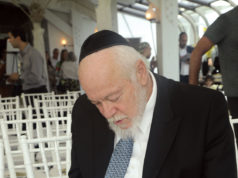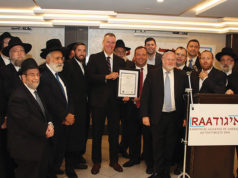
Jews first settled in Bolivia (which was then part of Peru) when Marranos from Spain arrived in the country. Some Jews worked in the silver mines of Potosi, others were among the pioneers who founded the city of Santa Cruz de la Sierra in 1557. The only existing documents from that period are those of the Inquisition, which was established in Peru in 1570 and signaled the demise of the Marrano community.
It was not until the 1900s that substantial Jewish settlement took place in Bolivia. In 1905, a group of Russian Jews arrived, followed by a group from Argentina, and later by several Sephardic families from Turkey and the Near East. The Jewish community nonetheless remained minuscule until the first tide of Jewish immigration came in the early 1930s. Desperate to escape the increasingly vehement persecution in their homelands, thousands of refugees from Nazi-dominated Central Europe, the majority of them Jews, found refuge in Latin America in the 1930s. Bolivia became a principal recipient of this refugee influx by the end of the decade when Argentina, Brazil, Chile and Mexico—traditional “countries of choice” for European immigration—applied severe restrictions to the entrance of newcomers.
In 1939, Bolivia’s liberal immigration policy was modified and in May 1940, all Jewish visas were suspended indefinitely; nevertheless, immigration continued. After World War II a small wave of Polish Jews who had fled to the Far East after 1939, but abandoned Shanghai in the wake of the communist takeover, arrived in La Paz, Bolivia. The major part of the group remained in La Paz, and was incorporated into the existing community.

By the fall of 1939, when immigration had reached its peak, organized Jewish communities gained greater stability in Bolivia. The first organization to be founded was the Circulo Israelita (1935) by East European Jews, followed by the German Comunidad Israelita. Under the auspices of the Comite Central Judio de Bolivia, various communal services were established, including the Hevra Kaddisha, the Cementerio Israelita, Bikkur Holim and the house for the aged. The La Paz community also started and maintained the Colegio Israelita, a comprehensive school with kindergarten, primary and secondary grades.
Starting with the end of World War II, continuing with the establishment of the State of Israel in 1948, and accelerating in the 1950s, the demographic trend that had been marked by a sharp increase in the Jewish population of Bolivia was reversed. Large numbers of the Jewish wartime immigrants and their children left the country, either to move to other “more Europeanized” Latin American countries like Argentina or Brazil, to the United States, to Israel, or back to their countries of origin. The consistent exodus was stimulated by a variety of factors, including the political instability in the country.

Bolivia was among the supporters of the 1947 UN resolution on the partition of Palestine. Subsequently, a Bolivian representative was named to the Palestine Commission. In ensuing debates at the United Nations, notably those on the refugee problem, despite changing governments and resultant differences of policy, Bolivia was remarkably consistent in maintaining a friendly attitude to Israel. The two countries engaged in a variety of assistance programs.
By the early 1990s, there were around 700 Jews left in Bolivia. That number has declined even more, as many members of Bolivia’s younger Jewish generation continue to emigrate. As in the past, the majority of remaining Jews live in the capital, La Paz, but there are smaller communities in Santa Cruz and Cochabamba. The Circulo Israelita, the central Jewish communal organization, now embodies both of its predecessors, the Circulo Israelita de La Paz and the Comunidad Israelita de Bolivia. There are synagogues and a rabbi in La Paz, and synagogues in Cochabamba and Santa Cruz. Economically, members of the community are now relatively well to do, engaged in manufacturing, merchandising, importing and exporting.
The Jewish communities have shrunk even more since the 2005 election of Bolivia’s socialist president, Evo Morales, and his staunch anti-American stance and ties to both Venezuelan President Hugo Chavez and Iranian President Mahmoud Ahmadinejad. Since Morales took office, Bolivia’s largest Jewish community of La Paz has decreased by approximately 10% and community leaders expect that in the next 10 to 20 years the Jewish population will disappear completely.



